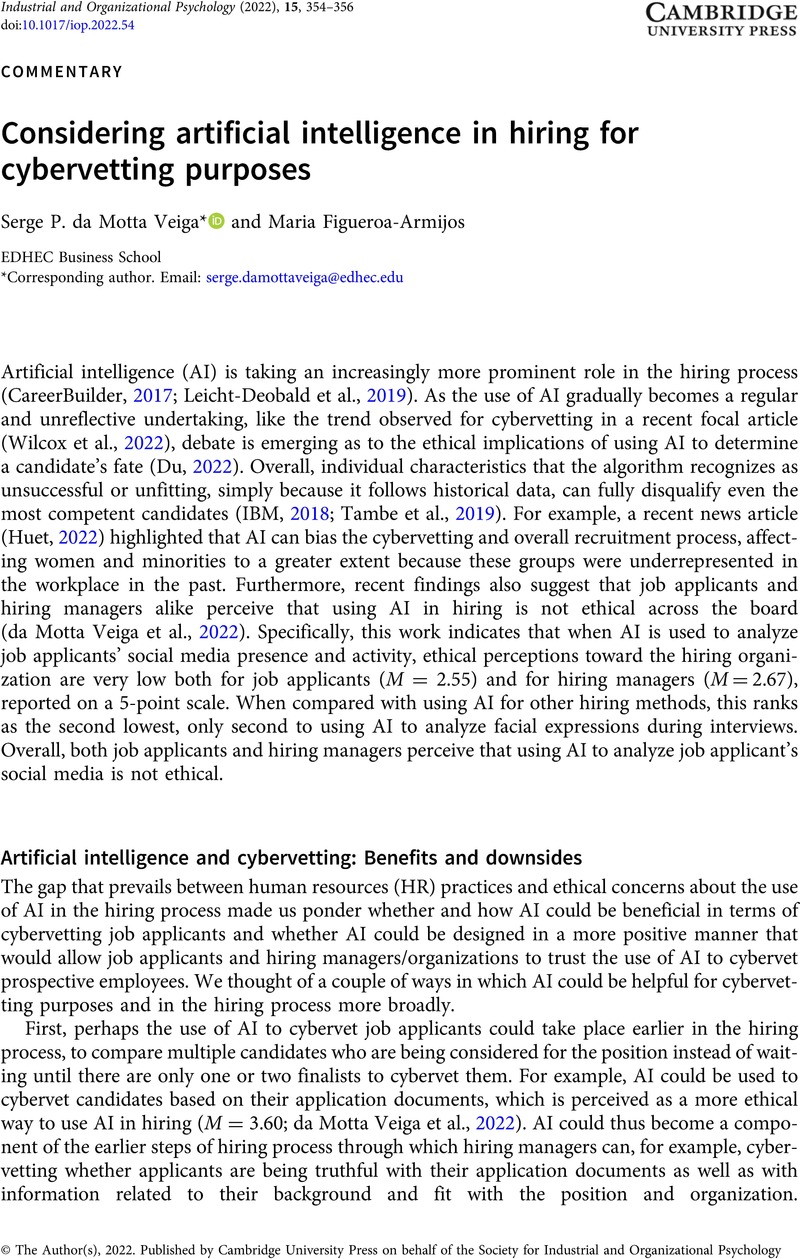Crossref Citations
This article has been cited by the following publications. This list is generated based on data provided by Crossref.
Mori, Martina
Sassetti, Sara
Cavaliere, Vincenzo
and
Bonti, Mariacristina
2024.
A systematic literature review on artificial intelligence in recruiting and selection: a matter of ethics.
Personnel Review,



